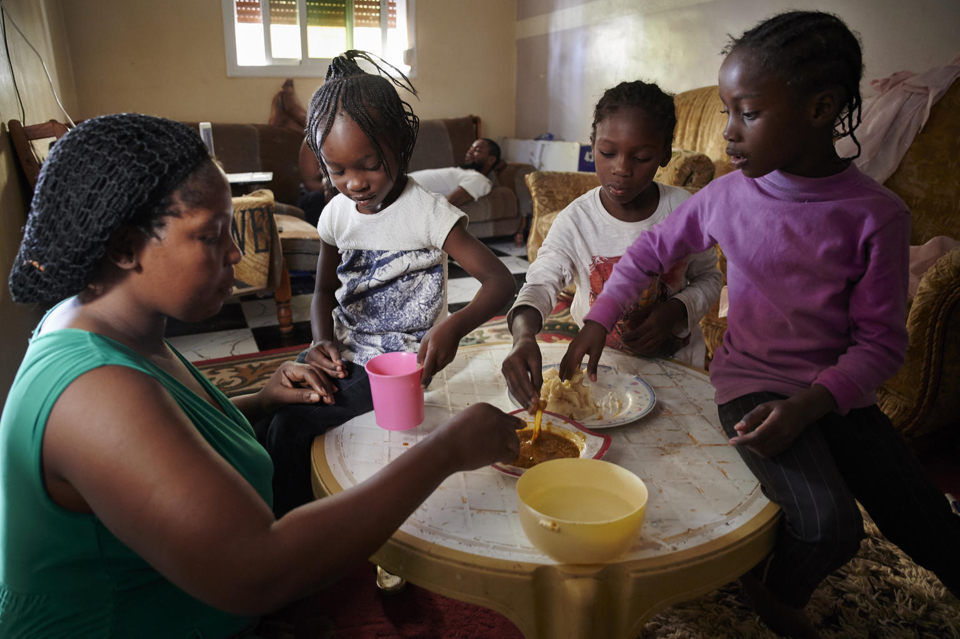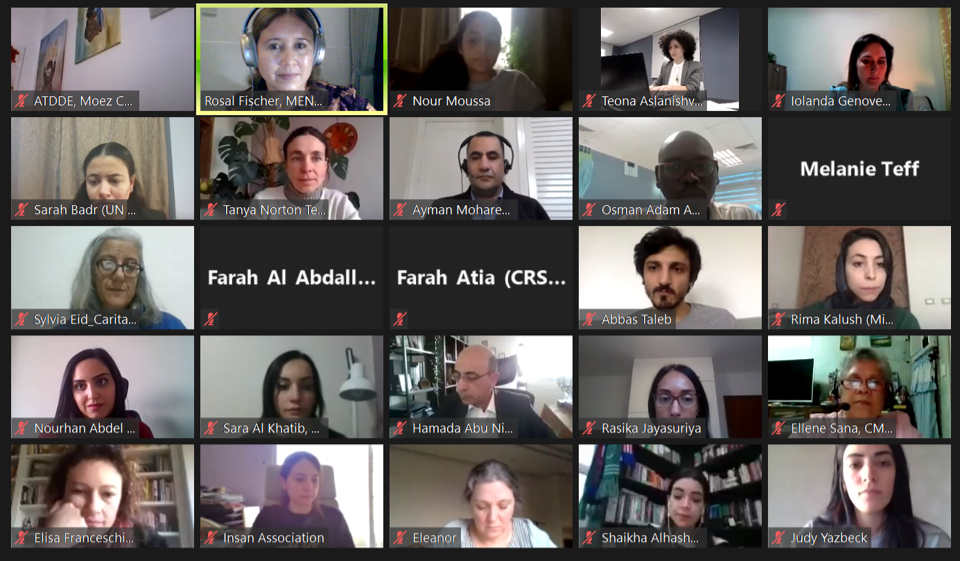Migrants and their support groups review priorities of migrant women, children and youth in the Arab States
Date:

About a hundred migrants and their support groups, including regional and national networks, non-governmental organizations (NGOs), community and faith-based organizations, academia, private sector, media, and UN representatives attended an online consultation on the implementation of the Global Compact for Migration (GCM) for women migrant workers, migrant children and youth in the Arab states region on 15 February 2021.
Co-hosted by UNICEF Middle East and North Africa Regional Office (MENARO) and UN Women Regional Office for the Arab States (ROAS), the online consultation was organized to review progress, identify solutions and address continuing challenges faced by migrant women, children and youth in the region. The outputs from the consultation will feed into regional review of the GCM taking place in February.
“This consultation has striven to have migrant women, and migrant children and youth speak for themselves - a positive trend, in line with the Global Compact for Migration’s whole of government, whole of society approach, and adding invaluable insights,” said Susanne Mikhail Eldhagen, UN Women Regional Director for the Arab States.
“There is a need for regional leadership to reform and strengthen national systems in a way that ensures effective protection of all children, including migrant children, irrespective of nationality or migration status,” said Ted Chaiban, UNICEF Regional Director for the Middle East and North Africa.

The half day consultation heard from six panelists, including migrants, as well as representatives from women’s rights organizations, a child and youth advocacy group and a research institution. They emphasized the need for improved and disaggregated data of women, children and youth in migration contexts, the need for legislative and policy reforms and for increased funding, recognition and support of civil society organizations who are, or potentially could, provide improved support and services to migrating women, children and youth, and the importance of directly engaging with migrant communities.
Key recommendations emerging from this forum included:
- Ensure inclusion of migrant children in national laws, policies and programmes – based on need and irrespective of their migratory status. While doing so, address discrimination and capitalize on young migrants’ contribution to host countries
- Address continuing protection challenges – such as practices of immigration detention, family
separation, difficulties of registration of children born to migrant workers and subsequent exclusion from protection and basic services - through national, cross border and regional leadership
- Address migrant young men and women’s inclusion in national education systems, recognition of their previous education qualifications and facilitate access to employment
- Generate sex-disaggregated data and analysis on the labour market situation of women migrant workers
- Ensure gender-sensitive labour law coverage and related programmes including for domestic workers with robust enforcement and accountability
- Dismantle the sponsorship system.
Read the outcome document of the meeting here.
About the Global Compact for Migration
The Global Compact for Safe, Orderly and Regular Migration is the first inter-governmentally negotiated agreement, prepared under the auspices of the United Nations, covering all dimensions of international migration in a holistic and comprehensive manner. It presents a significant opportunity to improve the governance of migration, to address the challenges associated with today’s migration, and to strengthen the contribution of migrants and migration to sustainable development.